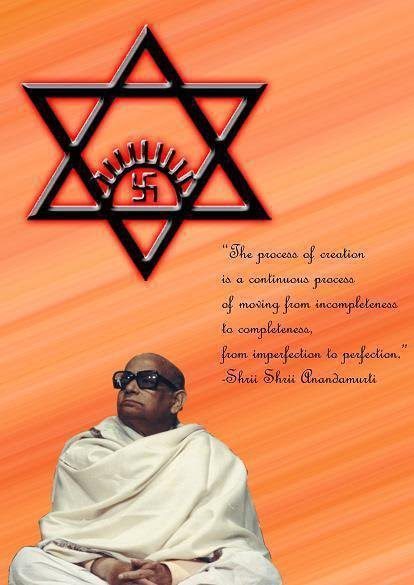Today is my 4th Spiritual Birthday. On 25 Oct 2009..I received my Diiks’a (Initiation into Spiritality). The Acharya who initiated me is Acharya Advaynanda Avdhuta and the friend who introduced me to Acharya is Syed Akhtar also popularly known as Moody in Dallas. I ( An Indian by birth and lived 25 years in India) was initiated by a Monk from Malaysia and the friend who acted as a medium was from Pakistan and this happened 9000 miles away from my City of Birth Mumbai. Apekshit Mulay (Hindu by birth ) was initiated into Vidya Tantra ‚ by Acharya Advayannand (Theo Ike, Christian by Birth) through medium of Syed Akhtar (Moody, Muslim by Birth). ‚ This could only happen when the Guru who made these connections was a truly Cosmic Guru ( Who is Universal and has no religion of his own) who said –
“What does the term ¢‚¬Å“diiksa¢‚¬ mean? During the DMC discourse in Madras, I said that the Samsrta word ¢‚¬Å“diiksa¢‚¬ and the English word ¢‚¬Å“initiation¢‚¬, do not have quite the same meaning. But as there is no exact English equivalent for diiksŒaŒ, the word ¢‚¬Å“initiation¢‚¬ is generally, used. According‚ to the scriptural meaning, diiksa is derived from ¢‚¬Å“dii¢‚¬ and ¢‚¬Å“ksa¢‚¬. Dii is the first letter of the word ¢‚¬Å“diipajinana¢‚¬ (light of knowledge) and ksa is the first letter of ¢‚¬Å“kssayam¢‚¬ (exhaustion of samskaras).
DiipajinaŒnamyato dadyaŒt kurhaŒt paŒpaksŒayamtatah
TasmaŒt diiksŒeti saŒ proktaŒ sarvatantrasya samnata.
Diiksa is the process which leads to the attainment of the light of knowledge and the exhaustion of accumulated samskaras. There is no difference of opinion amongst the different schools of Tantra on this point. Suppose you have to travel to a certain place in the dark along a path strewn with sharp stones and boulders. If you attempt to take even one step forward you might fall down and injure yourself. So, you should take a lamp with you. This is called ¢‚¬Å“diipajinaŒnam¢‚¬. When people are given diksŒa they gain momentum to move along the spiritual path through mantra caetanya (conceptual understanding of the psychic meaning of mantra) and mantraghat (striking by incantation). All human beings possess a set of samskaras. When they receive diksŒa according to their samskaras, mantraghat occurs. That is, the incantation strikes at the sleeping divinity (kulakundalinii or coiled serpentine) and arouses it. This results in the aspirant¢‚¬„¢s spiritual progress. People cannot make any spiritual progress prior to initiation due to a lack of diipajinanam. ¢‚¬Å“Dii¢‚¬ is the first letter of diipajinanam, and [[the second is [the ¢‚¬Å“ksa¢‚¬ letter of] paappaksayam.]] PaŒpa means ¢‚¬Å“samskaras¢‚¬ and ksayam means ¢‚¬Å“exhaustion¢‚¬.
What do we mean by the exhaustion of samskaras? According to natural law, each action has an equal and opposite reaction provided the three fundamental factors of time, place and person remain unchanged. However, there is almost always a change in these relative factors. Hence, an action does not always have an equal and opposite reaction. Suppose you have borrowed a thousand rupees from someone. If you return the money after a few months or even after a few years, you will have to pay some interest. If you return the loan immediately, however, there is no change in time, place and person and you will only have to return the original amount. If an action¢‚¬„¢s reaction is immediate, it will be equal and opposite. But if the reaction occurs after a change in time, place or person, its magnitude will increase. Some people suffer the reaction immediately, some after two years, some after one hundred years, and some after twenty lifetimes. The more the delay, the greater the reaction. That is, some ¢‚¬Å“interest¢‚¬ will have to be added to the reaction of the original action. This is the natural law.
NaŒbhuktamksŒiiyate karma kalpakoti shaŒtaerapi;
Avashyameva bhoktavyamkrtamkarma shubhaΠshubham.
YaŒvanna ksŒiiyate karma shubhamcaŒ shubhamaeva ca;
TaŒvanna jaŒyate moksŒonrnŒaŒmŒ kalpa shataerapi.
YathaŒ laohamayaerpaŒshaeh paŒshaeh svarnŒamayaerapi;
TathaΠbaddho bhavejjiivo karmaΠbhishcaΠshubhaershubhaeh.
But when this is the law, how does initiation lead to the exhaustion of one¢‚¬„¢s accumulated samskaras? Everyone has to carry the load of his or her samskaras. Now, if the reactions of one¢‚¬„¢s actions occur quickly, one will not have to carry the load for a long period ¢‚¬œ the mind will not be burdened for long. People will experience mental peace and will advance happily along the path of life. After learning sadhana, even if there is a change in the relative factors of time, place and person, the payment of extra ¢‚¬Å“interest¢‚¬ will not be necessary. That is, the reactions will be equal and opposite to the original actions. What is the reason for this? Another of Parama PurusŒa¢‚¬„¢s names is Hari. What is the meaning of Hari? ¢‚¬Å“Harati papani ityarthe¢‚¬. One who steals one¢‚¬„¢s papa (here papa means ¢‚¬Å“samskaras¢‚¬) is called Hari. But why should Parama Purusa steal anything? He already has everything. He does not need anything from anyone. Yet Parama Purusa steals from His devotees ¢‚¬œ not directly but indirectly. This is a sorrowful matter as it goes against the principle of asteya, which tells us to refrain from theft. Parama Purusa Himself steals. How shameful! How deplorable! Actually, He is compelled to steal. Why? He steals because He dearly loves His devotees.
In this world it is almost impossible to find people who have never committed sins in their lives. Whether one is a confirmed thief or a petty thief, whether one is a patakii, an atipatakii or a mahapatakii, one should not worry, as all are equal in the eyes of Parama Purusa. All belong to Him, all are sitting on His lap. No one is different from Him. Even the worst sinners on whom society spits are not an object of hatred for Parama Purusa. They, too, are His dear children. He cannot hate anyone. He desires the spiritual progress of all. Society may declare that women are not entitled to do certain things and should not enjoy certain rights, but should remain confined within four walls. In this way society lays down different injunctions for different individuals. But Parama Purusa does not discriminate in this way : His daughters are as worthy of love as His sons. When a father plays with his children he does not differentiate between his son and daughter. He takes both on his lap. Both are treated equally. But today¢‚¬„¢s society is a villain which continues to exploit women.
In the eyes of Parama Purusa all are equal. One who has become an ardent spiritual devotee of Parama Purusa today may have been a wicked person in the past. Parama Purusa will think how His devotees may get final liberation from the burden of their accumulated samskaras. He is bound to think in this way. After all, it is the duty of a father to think about the future of his children. So Parama Purusa says to His devotees, ¢‚¬Å“Just see how difficult it is for you to carry such a heavy load of samskaras. You are small children. The load weighs more than you. How long will you be able to carry such a burden? You have accumulated so many samskaras that you will have to carry the load for many lives, for thousands of years. One life will certainly be insufficient. So I have a proposition. Give me the entire load of your accumulated samskaras. I will carry it for you¢‚¬.
The devotees reply, ¢‚¬Å“How can we possibly give our heavy burden to You? No, we must carry the load ourselves. We will sing songs and dance for you, but We will never give you such a heavy load of sins¢‚¬.
But Parama Purusa knows that His dear devotees cannot carry such a heavy load of sins. If they do not give away the load it will be a constant strain for them. So what does Parama Purusa do in such circumstances? He takes their sins without their permission. If someone takes things from others without their permission, what is it called? It is called theft. Thus, as Parama Purusa takes the load of sins from the devotees without their permission, He is certainly a thief ¢‚¬Å“Harati paŒpah yah sah Harih.¢‚¬ One who steals others sins is called Hari. So, one of His names is Hari.
To receive diiksŒaŒ means to come into the shelter of Parama Purusa, the Supreme Father. It is the mandatory duty of the Supreme Father to steal the samskaras of His favourite children. Hence it is said, ¢‚¬Å“KuryaŒt PaŒpaksŒayamtatah¢‚¬. That is, after receiving diiksa one¢‚¬„¢s load of accumulated samskaras gets exhausted. So diiksa is a must for everyone. This is why the scriptures place so much importance on diiksa.
Shri Shri Anandmurtiji ( My Tantric Guru )
22 February 1979 morning, Bhopal



Recent Comments